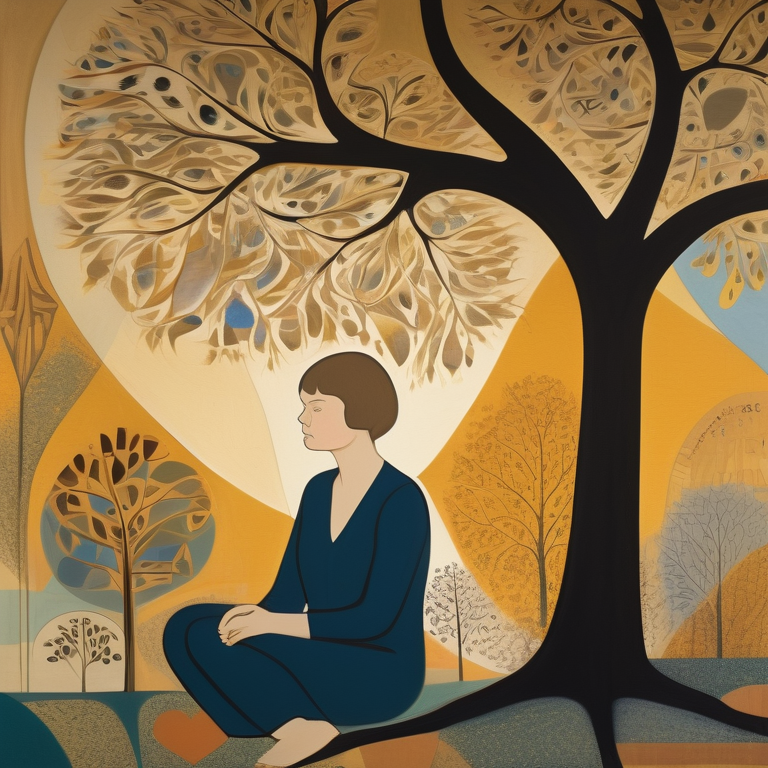Iris Murdoch and Philosophical Investigations of Love

Key Highlights
- Iris Murdoch’s exploration of love in literature
- The role of love in Murdoch’s narrative structure
- Comparative analysis of love in key novels
- Philosophical underpinnings of love according to Murdoch
- Love and the good in Murdoch’s moral philosophy
- The self and the other: Love’s dual aspect in Murdoch’s works
- Love, sexuality, and gender: A critical examination
- The influence of existentialism and Buddhism on Murdoch’s love
- Love as a central theme in Murdoch’s narrative technique
- Frequently asked questions about Iris Murdoch’s philosophy of love
Introduction
Iris Murdoch, the renowned novelist and philosopher, has made significant contributions to the exploration of love in literature and philosophy. Throughout her literary career, Murdoch delved into the complexities of love, examining its various dimensions and implications. Her unique perspective on love is deeply rooted in her moral philosophy and influenced by philosophical thinkers such as Plato, Simone Weil, and Wittgenstein. Murdoch’s exploration of love goes beyond the romantic notions typically associated with it, delving into its moral and philosophical significance during her philosophical training at Oxford and Cambridge. In her own words, Murdoch believed in the essence of Christianity and in Jesus Christ as an unparalleled teacher and example of goodness, emphasizing the idea of God and the sovereignty of good in her work. Additionally, her marriage to philosopher John Bayley greatly influenced her thoughts on love and relationships, as seen in her novel “The Good Apprentice” which explores the complexities of marriage and love.
In this blog, we will delve into Iris Murdoch’s investigations of love, exploring its role in her narrative structure, her comparative analysis of love in key novels, and the philosophical underpinnings of love according to her. We will also examine Murdoch’s perspective on love’s intersection with the concept of the good in her moral philosophy, the dual aspect of love in her works, and her critical examination of love, sexuality, and gender. Additionally, we will explore the influence of existentialism and Buddhism on Murdoch’s understanding of love and its central theme in her narrative technique. Finally, we will address frequently asked questions about Iris Murdoch’s philosophy of love.
Iris Murdoch’s Exploration of Love in Literature
Iris Murdoch, known for her captivating novels, has delved into the exploration of love in literature, offering unique insights into its complexities. Through her characters and narratives, Murdoch explores the different dimensions of love, delving into its moral implications and philosophical significance. Her exploration of love goes beyond the traditional notions of romance, offering a deeper understanding of its transformative power and its role in shaping human relationships. Murdoch’s approach to love in literature is both thought-provoking and emotionally resonant, making her novels a rich source for understanding the complexities of love.
The role of love in Murdoch’s narrative structure
In Murdoch’s novels, love plays a central role in the narrative structure, driving the actions and motivations of her characters. Love is not merely presented as a romantic pursuit but as a powerful force that influences moral choices and shapes the characters’ moral lives. Murdoch’s exploration of love in her narratives allows her to delve into the complexities of human relationships, highlighting the transformative power of love and its ability to reveal moral truths. Through her intricate storytelling, Murdoch presents love as a driving force that propels the characters towards self-discovery and moral growth. The exploration of love in Murdoch’s narrative structure adds depth and complexity to her novels, making them an engaging and thought-provoking read.
Comparative analysis of love in key novels
One of the unique aspects of Iris Murdoch’s exploration of love is her comparative analysis of love in key novels. She compares and contrasts different manifestations of love, examining how love can take on various forms and shapes within different contexts. Through this comparative analysis, Murdoch offers a nuanced understanding of love, shedding light on its complexities and challenging traditional notions of love. By exploring love in different relationships and contexts, Murdoch highlights the diversity of love’s expressions and its transformative power. Her comparative analysis of love in her novels adds depth and richness to her exploration of the theme, providing readers with a multifaceted understanding of love’s complexities.
1. The Sea, The Sea (1978)
In “The Sea, The Sea,” Murdoch explores obsessive love through the character of Charles Arrowby, a retired theatre director who becomes fixated on his first love, Hartley. This novel examines how obsession can distort reality and lead to destructive behavior. The themes of jealousy, possession, and the quest for redemption are central to this narrative. – Where to Read/Purchase: – Open Library (Free eBook) – Amazon (Paperback)
2. The Bell (1958)
“The Bell” offers a nuanced portrayal of both romantic and spiritual love. The novel is set in a lay religious community and explores the tensions between worldly desires and spiritual aspirations. Key characters such as Michael Meade and Dora Greenfield navigate these tensions, highlighting the conflicts and harmonies between different forms of love. – Where to Read/Purchase: – Open Library (Free eBook) – Amazon (Paperback)
3. A Severed Head (1961)
In “A Severed Head,” Murdoch tackles the complexities of marital and extramarital love, depicting the entangled relationships between Martin Lynch-Gibbon, his wife, and their lovers. The novel explores themes of deception, identity, and the often irrational nature of human desires. – Where to Read/Purchase: – Open Library (Free eBook) – Amazon (Paperback)
4. The Black Prince (1973)
This novel delves into the darker aspects of love, including the intertwining of love and artistic creation. Bradley Pearson, the protagonist, experiences a tumultuous relationship that raises questions about the nature of true love versus selfish desire. The Black Prince highlights the destructive and redemptive potentials of love. – Where to Read/Purchase: – Open Library (Free eBook) – Amazon (Paperback)
5. The Nice and the Good (1968)
In “The Nice and the Good,” Murdoch examines ethical love and moral dilemmas through the lives of the characters in a tight-knit community. The novel contrasts different forms of love, from platonic to romantic, and how they impact the characters’ lives and decisions. – Where to Read/Purchase: – Open Library (Free eBook) – Amazon (Paperback)
Philosophical Underpinnings of Love According to Murdoch
Iris Murdoch’s exploration of love is deeply rooted in her philosophical background. Influenced by philosophers like Plato, Simone Weil, and Wittgenstein, Murdoch’s understanding of love is informed by moral philosophy and metaphysical concepts. She delves into the nature of love, its relationship to truth and goodness, and its moral implications. Through her philosophical underpinnings, Murdoch offers a unique perspective on love that goes beyond romantic notions and delves into its moral and ethical dimensions. Her exploration of love through a philosophical lens adds depth and complexity to her understanding of this universal human experience.
Influence of Plato’s concepts on Murdoch’s perception of love
Plato’s ideas on love have had a profound influence on Murdoch’s perception of love. Plato believed that love is a spiritual and transcendent force that can lead individuals towards the ultimate good. Murdoch draws upon Plato’s concept of love as a transformative power and incorporates it into her own philosophy of love. For Murdoch, love has the capacity to reveal truth and goodness, allowing individuals to transcend their self-interest and connect with a higher moral reality. By exploring love through a Platonic lens, Murdoch adds depth and philosophical richness to her understanding of love’s transformative power and its role in shaping human relationships.
Love’s capacity to reveal truth in Murdoch’s philosophy
In Murdoch’s philosophy, love is seen as a powerful force that has the capacity to reveal truth. Love, for Murdoch, is not merely a romantic or sentimental notion but a moral and transformative force. Through love, individuals can transcend their own self-interest and connect with a higher moral reality. Love opens individuals to a deeper understanding of themselves and others, allowing them to see beyond surface appearances and engage with the truth. Murdoch’s philosophy highlights the importance of love in human relationships and its capacity to bring about personal growth and moral development. Love, in Murdoch’s philosophy, is a vehicle for truth and a means to achieve a deeper understanding of the world around us.
Love and the Good in Murdoch’s Moral Philosophy
In Murdoch’s moral philosophy, love is intricately linked to the concept of the good. She believes that love is central to leading a morally meaningful life. Love, for Murdoch, is not merely an emotion or sentiment but a guiding principle that shapes our actions and interactions with others. Through love, individuals can strive towards the good and cultivate a sense of moral responsibility. Love, in Murdoch’s philosophy, is a transformative force that compels individuals to act selflessly and engage with the world in a morally meaningful way.
The intersection of love and morality in personal development
In Murdoch’s philosophy, the intersection of love and morality is crucial for personal development. Love, for Murdoch, is not isolated from moral considerations but is intimately connected to our moral obligations towards others. Through love, individuals can cultivate empathy, compassion, and a sense of moral responsibility. Love compels individuals to act in ways that are morally virtuous and promotes personal growth and moral development. Murdoch’s philosophy highlights the transformative power of love in shaping our moral character and emphasizes the importance of love in leading a morally meaningful life.
Practical applications of Murdoch’s love ethic
Murdoch’s philosophy of love has practical applications in everyday life. Her love ethic emphasizes the importance of cultivating love and compassion towards others, promoting moral responsibility, and engaging with the world in a morally meaningful way. By practicing love in our interactions with others, we can foster a sense of empathy, understanding, and connection. Love, for Murdoch, is not an abstract concept but a guiding principle that can inform our actions and relationships. By incorporating Murdoch’s love ethic into our lives, we can strive towards a more compassionate and morally responsible society.
The Self and the Other: Love’s Dual Aspect in Murdoch’s Works
In Murdoch’s works, love is often explored in the context of the self and the other. She delves into the dual aspect of love, highlighting the interconnectedness between the self and the other in the experience of love. Love, for Murdoch, is not solely focused on the individual but encompasses a broader sense of connection and interdependence with others. Through her exploration of love’s dual aspect, Murdoch adds depth and complexity to her understanding of love as a transformative and altruistic force.
Understanding selflessness through the lens of love
In Murdoch’s philosophy, love is closely associated with selflessness. Love compels individuals to go beyond their own self-interest and act in ways that benefit others. Through love, individuals can cultivate selflessness, empathy, and compassion. Murdoch emphasizes the importance of transcending selfish desires and engaging with the world in a selfless manner. Love, in Murdoch’s philosophy, is a powerful force that encourages individuals to act in ways that promote the well-being of others and contribute to a more compassionate and interconnected society.
The role of attention in loving relationships
For Murdoch, attention plays a crucial role in loving relationships. Love requires individuals to be fully present and attentive to the needs and desires of others. By paying close attention to the other, individuals can foster a deeper connection and understanding. Murdoch emphasizes the importance of active listening and genuine engagement in cultivating loving relationships. Attention, in Murdoch’s philosophy, is a way of showing care and respect for the other, fostering a sense of intimacy and emotional connection. By prioritizing attention in our relationships, we can nurture love and create meaningful connections with others.
Love, Sexuality, and Gender: A Critical Examination
Murdoch’s exploration of love also extends to a critical examination of its intersection with sexuality and gender. She challenges traditional notions of love, questioning societal expectations and stereotypes related to love, sexuality, and gender. Through her examination, Murdoch highlights the complexities and diversity of human experiences of love and challenges societal norms and expectations. Her critical examination of love, sexuality, and gender offers a more inclusive and nuanced understanding of these concepts and their impact on individual experiences of love.
Challenges and critiques of Murdoch’s views on sexuality
Murdoch’s views on sexuality have faced challenges and critiques. Some argue that her perspective on sexuality is limited and fails to fully consider the breadth of human experiences and identities. Critics contend that her exploration of love and sexuality is rooted in traditional gender roles and fails to address the complexities and diversity of contemporary understandings of sexuality. While Murdoch’s examination of love and sexuality offers valuable insights, it is important to consider and engage with alternative perspectives that challenge traditional notions and embrace a more inclusive understanding of human experiences.
Gender dynamics within Murdoch’s conceptualization of love
Murdoch’s conceptualization of love also raises questions about gender dynamics. While she challenges traditional notions of love, gender dynamics within her works can be seen as reflective of societal norms and expectations. Critics argue that Murdoch’s portrayal of relationships often perpetuates traditional gender roles and fails to fully explore alternative possibilities for love and gender dynamics. However, it is important to consider the historical context in which Murdoch was writing and the limitations imposed by societal norms. Murdoch’s exploration of love and gender dynamics offers a starting point for further discussion and examination of these complex issues.
The Influence of Existentialism and Buddhism on Murdoch’s Love
Existentialism and Buddhism have had a profound influence on Murdoch’s understanding of love. Existentialism emphasizes the individual’s responsibility for creating meaning and purpose in life, while Buddhism focuses on the cessation of suffering through the practice of compassion and detachment. Murdoch incorporates these philosophies into her exploration of love, highlighting the importance of personal responsibility, compassion, and selflessness in the experience of love. The influence of existentialism and Buddhism adds depth and richness to Murdoch’s understanding of love and its transformative power.
Comparative analysis with Sartre’s existentialist views on love
In her exploration of love, Murdoch engages in a comparative analysis with Jean-Paul Sartre’s existentialist views on love. While Sartre views love as a form of radical freedom and a means to escape existential angst, Murdoch presents a more nuanced understanding of love as a transformative and moral force. Murdoch challenges Sartre’s individualistic perspective and emphasizes the interconnectedness between love, morality, and personal growth. Through her comparative analysis, Murdoch offers a critical examination of existentialist views on love and presents her own unique understanding of love’s transformative power.
Buddhist concepts of detachment and its influence on Murdoch
Buddhist concepts of detachment have had a significant influence on Murdoch’s understanding of love. Buddhism emphasizes the cessation of suffering through the practice of compassion and detachment from desires and attachments. Murdoch incorporates these concepts into her exploration of love, highlighting the importance of selflessness and the ability to let go of ego-driven desires in the experience of love. By embracing Buddhist principles of detachment, Murdoch offers a unique perspective on love that goes beyond selfish interests and focuses on the well-being and happiness of others.
Love as a Central Theme in Murdoch’s Narrative Technique
Love serves as a central theme in Murdoch’s narrative technique. Throughout her literary career, she explores the complexities of love, examining its various dimensions and implications. Love is intricately woven into the fabric of her narratives, shaping the motivations and actions of her characters. By making love a central theme, Murdoch delves into the transformative power of love and its impact on human relationships. Love becomes a driving force that propels the characters towards self-discovery, moral growth, and interconnectedness.
Techniques used to explore love’s complexity in storytelling
Murdoch employs various techniques to explore the complexity of love in storytelling. Through nuanced characterization, she brings to life the intricacies of human relationships and the subtleties of love. Murdoch uses rich symbolism and vivid imagery to convey the emotional depth and transformative power of love. She also employs intricate plot structures that allow for the exploration of love’s complexities and moral implications. By combining these techniques, Murdoch creates narratives that engage readers in a deep and thought-provoking exploration of love and its role in shaping the human experience.
The evolution of love themes across Murdoch’s literary career
Throughout her literary career, Murdoch’s exploration of love themes has evolved and developed. In her early works, love is often portrayed as a romantic and idealized notion. However, as her career progressed, Murdoch’s understanding of love became more nuanced and complex. She delved into the moral and philosophical implications of love, challenging traditional notions and exploring its transformative power. The evolution of love themes across Murdoch’s literary career reflects her growth as a writer and philosopher, as well as her deepening understanding of love as a multi-faceted and morally significant force.
Conclusion
In delving into Iris Murdoch’s profound explorations of love, we uncover a tapestry of interconnected themes – from the narrative structures in her literature to the philosophical underpinnings that emphasize love’s revelatory power. Murdoch’s fusion of Plato’s ideals with love’s moral essence and its pivotal role in personal growth paints a vivid picture of love as a transformative force. Through the lens of selflessness, attention, and the intricacies of gender dynamics, Murdoch invites us to contemplate love’s dual nature. Her works challenge conventional views, drawing inspiration from existentialism and Buddhism to deepen our understanding of love’s complexity. As we navigate Murdoch’s rich tapestries of love, let us continue the conversation below.
Frequently Asked Questions
How does Iris Murdoch differentiate between romantic and platonic love?
Iris Murdoch differentiates between romantic and platonic love by emphasizing the moral and transformative aspects of love. While romantic love is often focused on personal desire and attraction, platonic love encompasses a deeper sense of connection, altruism, and moral responsibility.
Can love be considered the central moral principle in Murdoch’s philosophy?
Love is indeed considered the central moral principle in Murdoch’s philosophy. She emphasizes the transformative power of love and its ability to guide individuals towards moral responsibility, compassion, and selflessness.
What novels would you recommend for exploring Murdoch’s investigations of love?
For exploring Iris Murdoch’s investigations of love, some recommended novels include “The Sea, The Sea,” “The Bell,” and “A Severed Head.” These novels delve into the complexities of love and offer unique insights into Murdoch’s exploration of the theme.
What were Iris Murdoch’s views on love and its philosophical implications?
Iris Murdoch believed that love is a transformative force that has moral and philosophical implications. She emphasized the interconnectedness between love, truth, and goodness, and viewed love as a means to transcend self-interest and engage with a higher moral reality.
How did Iris Murdoch’s philosophy influence her perspective on romantic relationships?
Iris Murdoch’s philosophy influenced her perspective on romantic relationships by emphasizing the importance of love as a transformative and moral force. She believed that love goes beyond personal desires and requires individuals to act selflessly and engage with others in a morally meaningful way.
What are some key concepts from Wittgenstein’s “Philosophical Investigations” that relate to love, as explored by Iris Murdoch?
Key concepts from Wittgenstein’s “Philosophical Investigations” that relate to love, as explored by Iris Murdoch, include the importance of attention, language, and the role of perception in understanding and experiencing love.
How did Iris Murdoch challenge traditional notions of love through her philosophical explorations?
Iris Murdoch challenged traditional notions of love by emphasizing its moral and transformative aspects. She went beyond the romantic idealization of love and explored its complexities, highlighting its connection to moral responsibility, selflessness, and personal growth.





